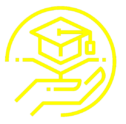In today’s digital age, knowledge is more accessible than ever before. With vast amounts of information available at our fingertips, the world can feel like an ocean of knowledge, waiting to be explored. However, navigating this ocean requires strategy, focus, and curiosity. In this post, we will discuss how to effectively navigate the ocean of knowledge, adopt a mindset of continuous learning, and apply what you discover to lead a more enriched life.
1. Setting a Course: Defining Your Learning Goals
When navigating an ocean, having a clear direction is essential. The same principle applies when navigating the sea of knowledge. To avoid getting lost in a sea of information, it’s important to define your learning goals. What subjects do you want to explore? What skills do you wish to acquire? By setting clear goals, you can create a focused path for your learning journey.
Start by asking yourself what areas of knowledge interest you the most. Whether it’s science, art, history, or self-improvement, having a roadmap ensures that your learning is purposeful and aligned with your personal and professional aspirations.
2. Choosing the Right Tools: Resources for Knowledge Exploration
The ocean of knowledge offers endless resources for exploration, but selecting the right tools can make your journey more efficient and rewarding. In today’s world, you can access knowledge through various platforms and formats, including:
- Online Learning Platforms: Websites like Coursera, edX, and LinkedIn Learning offer structured courses on a wide range of topics.
- Books and E-books: Traditional books remain one of the richest sources of knowledge. Platforms like Kindle and Audible also make it easy to consume books on the go.
- Podcasts and Webinars: These are perfect for learners who prefer audio or visual content, offering expert insights on specialized topics.
- Research Papers and Journals: If you’re delving into academic or technical subjects, academic journals and research papers provide in-depth, peer-reviewed information.
Choosing the right tools ensures that you’re navigating the ocean of knowledge effectively, without feeling overwhelmed by the sheer volume of available information.
3. Avoiding Information Overload: Focus and Depth Over Quantity
In an era where information is abundant, one of the biggest challenges is avoiding information overload. With so much content available, it’s easy to fall into the trap of consuming knowledge without truly absorbing or applying it.
To avoid information overload, prioritize depth over quantity. Focus on mastering a few topics at a time rather than skimming through many subjects. By immersing yourself deeply in one area of knowledge, you gain a more comprehensive understanding and retain the information better. Additionally, practice mindfulness while learning—take breaks, process what you’ve learned, and engage with the material actively.
4. Lifelong Learning: Embracing the Journey
The journey through the ocean of knowledge is not about reaching a final destination, but about continuous exploration. Lifelong learning is the practice of seeking knowledge throughout your entire life, regardless of age or profession. It’s about staying curious, adapting to new information, and evolving as a person.
To embrace lifelong learning, cultivate a growth mindset. Believe that your abilities and intelligence can always be developed. This mindset encourages you to seek out new experiences, challenge your assumptions, and learn from failures. By doing so, you ensure that the ocean of knowledge remains a source of inspiration and growth throughout your life.
5. Applying What You’ve Learned: Turning Knowledge into Action
The true value of knowledge lies in its application. Simply consuming information isn’t enough—you must apply what you’ve learned to make a meaningful impact in your life. Whether it’s improving your career, enhancing personal relationships, or contributing to your community, applied knowledge transforms information into real-world solutions.
To effectively apply knowledge, take action as soon as you learn something new. Test your understanding by teaching others, implementing new strategies in your work, or experimenting with new approaches in your personal life. The more you practice applying knowledge, the more confident and skilled you become in navigating the vast ocean.
Conclusion: Mastering the Ocean of Knowledge
Navigating the ocean of knowledge is an ongoing adventure filled with endless possibilities. By setting clear learning goals, choosing the right resources, avoiding information overload, and applying what you’ve learned, you can make the most of the abundant knowledge at your disposal. Remember, the journey is as important as the destination—embrace the process of learning, and let curiosity guide you through the ever-expanding ocean of knowledge.

